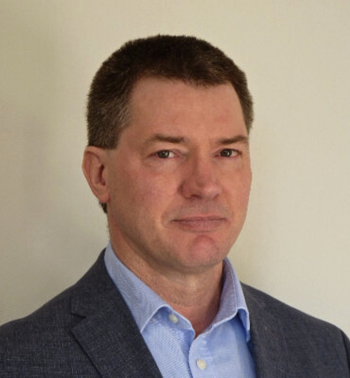13 November 2024
What is your role within King’s Health Partners?
I’m a Senior Research Fellow in the Department of Basic & Clinical Neuroscience, School of Neuroscience, within the Institute of Psychiatry, Psychology & Neuroscience. My full (rather long) job title is Senior Research Fellow in AI Methods Applied to Health Records, which is pretty self-explanatory and describes my role.
Essentially, I develop and apply Artificial Intelligence methodologies to Electronic Health Records (EHRs) for medical research. I work within a team of six, led by Prof Mark Richardson. We’re working on an epilepsy project that uses AI to mine EHRs at scale to discover anti-seizure medications (ASMs) that enable people with epilepsy who don’t respond to ASMs to either improve, or eradicate, their seizures.
What do you enjoy most about your role?
The most enjoyable – and challenging – aspect of my job is devising innovative ways to solve technical problems. In particular, we’re using new generative Large Language Models (LLMs), which have only been publicly available for a few years, to extract key epilepsy data from highly unstructured EHRs (mostly doctors’ and nurses’ reports on outpatient visits).
Given LLMs are a new tool, there’s no real road map, so we’ve had to do a lot of experimentation, with a lot of trial and error. But when you eventually find a solution to your problem, it’s very satisfying intellectually. We're also applying machine learning algorithms for our data analysis.
What inspired you to get into this work?
I had been working with LLMs on a previous research fellowship at another university and concluded that they may potentially be a quantum leap in epistemology for humans.
We can now achieve different kinds of knowledge, previously impossible, by applying these new AI tools to data at scale.
At this stage, I’m leaning more to working in applied AI, rather than theoretical AI, so when I received the offer to do this work in medical research, I accepted. I also have a background in quantitative analysis in the finance sector, so am familiar with analysing data at scale.
How will your work impact the lives of patients?
For this project, the key facts are that about 1% of the population suffers from epilepsy. Of those, about 30% do not respond to ASMs. These people are called refractory patients. If we can identify some ASMs or combinations of ASMs that help refractory patients, hopefully that might improve or eradicate seizures for some or many of them. Also, the software we are developing is transferable for research into other medical conditions.
What are the benefits of working in partnership?
AI is so complex it’s necessary to work in teams and partnerships. No individual can do it all on their own. And as individuals we all have different skills sets.
The secret of a good partnership is choosing the right individuals for a team with complementary skills in order to optimise the results for the research project.
With AI Health this is doubly so, because the field is, by definition, multidisciplinary: AI experts working alongside medical experts. I’m privileged to be able to consult and get advice from a range of very talented people working in AI Health at King’s College London.
What would be your career top tips?
For this line of work, but not necessarily in order of importance: enjoy what you do for a living; stay creative intellectually; be confident and assertive in your own professional judgement.
Consistently challenge yourself and others to strive for innovation and excellence; keep up with the rapid pace of advances in technology; embrace failure as much as success – it’s how you learn.
Think and act globally; network with other people in the sector; develop skills across different disciplines. Finally - work hard; stay fit and healthy.
The King's Health Partners Digital Health Hub aims to accelerate the development of digital health and data science technologies, including through our leadership of the AI centre for value based healthcare.





